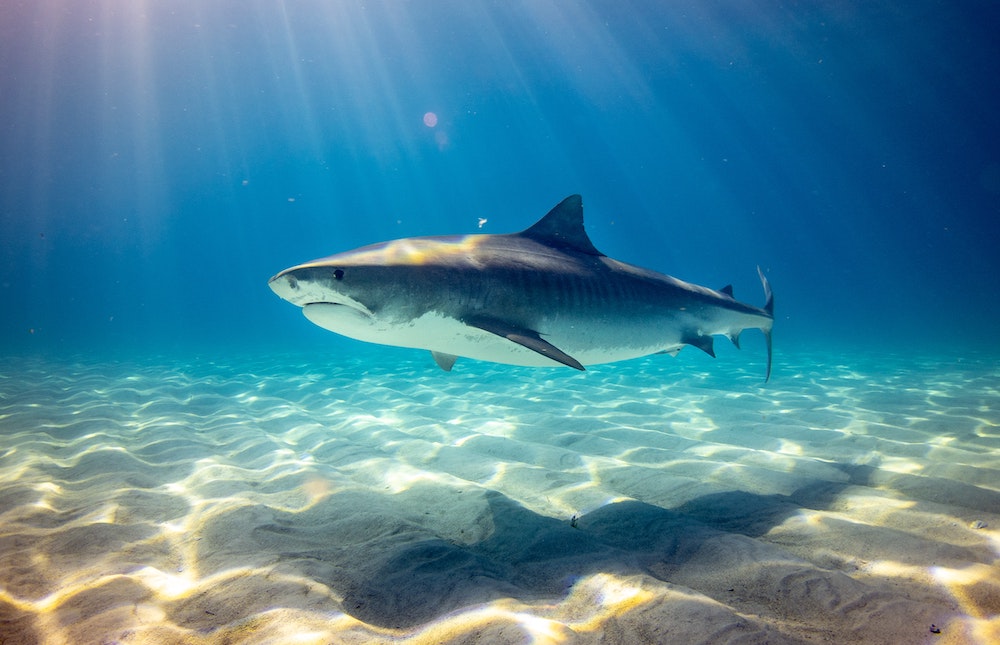Sharks are trending again and this time it’s not for Discovery Channel’s annual Shark Week. Rather, there is a recent massive push to end the trade of shark fins in Europe being spearheaded by a citizen group of European Union (EU) members. Together, they created the online petition to ban shark fin products in all of the EU and recently announced they hit their goal of 1 million signers before the deadline at the end of January 2022. The petition aims to “end the trade of fins in the EU including the import, export and transit of fins other than if naturally attached to the animal’s body” by developing a new regulation, extending “fins naturally attached” to all trading of sharks and rays in the EU.
The European Union banned shark finning in 2003 and closed loopholes to tighten legislation in 2013 but the possession and sale of these products is still legal. Signatories of this petition are urging the EU to ban all possession and sale of these products, ending these countries’ participation in the cruel and unsustainable shark finning trade. Shark finning is the process of capturing a shark and removing one or more of its fins. In many cases, the rest of the shark’s body is dumped into the ocean. The shark dies from suffocation, blood loss, or predation.
While many of the countries credited with high importation of shark fin products are located in Asia, Europe still plays a huge role in the shark finning industry. Each year, millions
of sharks are caught in European waters with Spain an example of a leading manufacturer of unprocessed shark fins. European (and especially Mediterranean) ships are documented to bring thousands of tons of shark fins (over half of which may belong to endangered species) to shore. By banning the possession and sale of these products, the EU would be taking major steps to protect sharks and setting an important precedent for the rest of the world.
Shark fins are harvested to be used mainly in shark fin soup, which is considered a delicacy in some cultures. With no nutritional value, shark fins are not consumed regularly as a part of any healthy diet and are only a delicacy afforded wealthy people on special occasions. Despite the fact that artificial shark fins exist, they are not commonly used because of the status symbol equated with real shark fins. From 1985 to 2004 the production of shark products more than doubled. This has led to a dramatic decrease in shark populations across the board. For example, the smooth hammerhead’s population has decreased a staggering 99% since 1972.
Sharks are an integral part of the marine ecosystem; their removal can trigger a collapse in the entire food web, leading to problems with our own marine food sources. Sharks show considerable diversity in ecology, feeding habits, and body size. They occupy coastal, demersal, and pelagic habitats in every ocean, ranging from scavengers to apex predators in their ecosystem roles. The IUCN Shark Specialist Group notes that “despite their evolutionary success, many species are increasingly threatened with overexploitation as a result of their life history traits and human activities (especially fishing).”
An important part of shark conservation lies in changing the global view of sharks overall. We need people to see these creatures as the long-lived, ecologically-important wildlife that they are, rather than the incorrectly labeled overabundant man-eating villain that so many see them as. One study compared Australian and U.S. news media portrayals of sharks from 2000 to 2010 and found that shark conservation was only the focus of 11% of articles while shark attacks was the focus on over half. This is alarming considering the fact that humans kill on average 73 million sharks a year while sharks only kill on average four or five people a year.
Public pressure can play an important role in changing unsustainable or cruel commerce activities. During the 1980s the media began to focus on tuna-related dolphin deaths. Calls for boycotts of canned tuna (led by the Earth Island Institute and their infamous Sam La Budde video which exposed the killing of dolphins during tuna fishing operations) led the three biggest tuna canners in the US market to agree to a dolphin-safe labeling policy in 1990. Soon other canners followed suit and the US government passed the Dolphin Protection Consumer Information Act of 1990 which mandated that dolphin-safe labels be verified and sanctioned by an official observer.
Despite increasing anti-finning legislation and media coverage, shark populations are declining around the world. It’s critical that we as consumers work to preserve the hundreds of ecologically important shark species that sustain the health of our oceans. Education and outreach can make all the difference when it comes to conserving a species being overexploited for its products. The power of the people has proven itself in the past and we can only hope that the million plus European Union members who signed their name to this petition will convince the EU to advance this new regulation. As a global superpower, this move would be revolutionary for shark conservation and for the promotion of sustainable fishing and consumerism worldwide.
Related: What I Learned By Swimming With Sharks
Get more like this—Sign up for our daily inspirational newsletter for exclusive content!
__
Photo: Gerald Schombs via Unsplash





